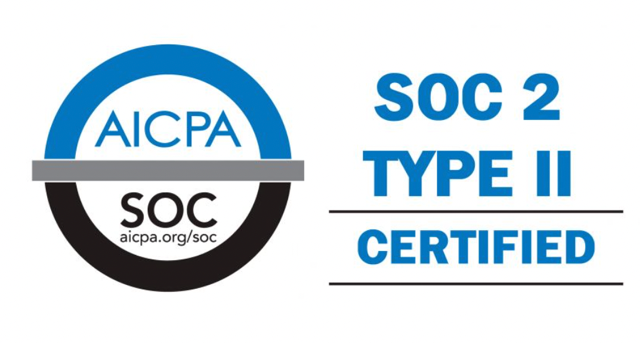
From 100 to 1 million Transfers: Scaling MFT for Enterprise Growth
From 100 to 1 million Transfers: Scaling MFT for Enterprise Growth Ever wondered what happens when your daily file transfers multiply by
When you embark on a file gateway consolidation project, there are hundreds of questions you may have thought of, and many that may not have even occurred to you. It all depends on where you are in your Managed File Transfer journey. As the leader in Managed File Transfer (MFT) solutions, IBM has fielded many questions about file gateway consolidation over the years. That’s why we want to share with you the six questions that you should be asking every vendor you evaluate.
These questions, while not comprehensive, will uncover some of the biggest challenges that cause many companies to switch to IBM after choosing another vendor. Usually that first choice makes obvious the complexities of MFT and illustrates why a strong multi-protocol, multi-process file gateway solution is needed. We think you should investigate all your options. Just make sure to ask these questions of any vendor you consider in your short list for a new consolidated file gateway solution.
While every solution can allow you to purchase additional copies of the product, how seamless is the management, setup and expansion as your loads increase? Where are the bottlenecks, as volumes go up — in the processor, memory, or database? What has been tested and what configuration is required to support that?
While performance benchmarks are just representative, it is important for a vendor to have the information available to give you guidelines. As you think about how big is big enough, look at your historical volumes and examine new initiatives, like geographic expansion or new business strategies to project your volumes into the future. Realize that a new consolidated file gateway will need to last five to eight years before you can consider replacing it.
Because our solutions handle some of the most demanding workloads in the world, we think about, plan for and test our file gateway software to make it ready for your business needs. A technical performance paper is available for download here, which provides real-world numbers on how IBM File Gateway performs.
Because of the sensitive nature of files that are transferred via a File Gateway, security is a key issue. Everything from purchase orders to payment instructions needs to be secured. For most vendors, a security discussion centers on encrypting the transport layer with HTTPS, FTP/S or SFTP. While this
is a necessary first step (one that all vendors should be able to do), it is not nearly enough for most enterprises.
Advanced security capabilities now focus on three key areas.
At IBM, we continue to look for ways to improve the security for your enterprise.
When you trust all your external file exchanges to one solution, it has to be highly available and resilient to many types of failures. Most vendors will support clustering to work with load balancers, but the difficulty is often with a central database. Even with HA options on the database, there are issues like maintenance, indexing, corruption and schema updates that require a recycle.
IBM innovation brings you closer to delivering an “always on” file gateway. Advanced communications can be an optional feature integrated within IBM File Gateway that creates an abstracted communication subsystem from the document processing. That way, if applications or back-end processes get disrupted by a planned or unplanned outage, your communications are still able to receive documents from trading partners.
Ask the tough questions when it comes to service level agreements, disaster recovery and high availability., because your internal and external partners will.
Your organization has no doubt standardized on some common infrastructure items that you have developed expertise around that will be important to leverage. Make sure that your vendor supports your key infrastructure components. But don’t fall into the trap of thinking that just because you have standardized on a particular database, you need look at that vendors’ file gateway solutions first.
The biggest mistake that many firms make is getting a solution that locks them into one platform. This limits many future choices in infrastructure, even if it works today.
Most firms will want connectivity into other common services in their organization. Whether this includes directory services like LDAP/Active Directory, common infrastructure like data warehouses, message busses, reporting/analytics or problem ticketing systems, make sure you ask before you buy. If the vendor does not have pre-built support, make sure you evaluate the strength of the integration point’s highlighted in question five as well as your expertise to build them yourself.
Every solution will need to be extended, customized or integrated with something you have not even thought about yet. That’s why it’s important to investigate how committed a vendor is to opening ways to help you do this, both now and in the future. It is also important to determine how many extensions are prebuilt, versus coding on your own. Specifically, ask if they have:
IBM continues to advance its integration capabilities as demonstrated by the new RESTful APIs for IBM Control Center. For example, one IBM customer was experiencing such communication delays from China they built an inventory availability service through chat using the IBM platform.
To provide an enterprise-wide consolidated service, a file gateway must give you the operational information to deliver higher levels of availability and service. While every solution gives you basic track and trace, the leaders provide advanced notifications, reporting, and visibility capabilities.
IBM File Gateway provides a high level of integrated visibility in the base product, while also offering an optional monitoring and governance solution. IBM Control Center tracks the critical events across your B2B and managed file transfer (MFT) software for improved operations, customer service, and B2B governance. It applies rules to alert key audiences when there is a problem with a server, process, ss, or transfer. Actionable dashboards are customized for various types of users, including operations staff, IT governance, risk and compliance (GRC) professionals, and line-of-business (LOB)
customer service representatives.
Browse categories

From 100 to 1 million Transfers: Scaling MFT for Enterprise Growth Ever wondered what happens when your daily file transfers multiply by

In today’s fast-paced world of data analytics and AI, optimizing your data infrastructure is key to unlocking valuable insights and driving innovation.

In today’s fast-paced world of data analytics and AI, optimizing your data infrastructure is key to unlocking valuable insights and driving innovation.
We are a forward-thinking technology services provider dedicated to driving innovation and transformation across industries.


| Cookie | Duration | Description |
|---|---|---|
| cookielawinfo-checkbox-analytics | 11 months | This cookie is set by GDPR Cookie Consent plugin. The cookie is used to store the user consent for the cookies in the category "Analytics". |
| cookielawinfo-checkbox-functional | 11 months | The cookie is set by GDPR cookie consent to record the user consent for the cookies in the category "Functional". |
| cookielawinfo-checkbox-necessary | 11 months | This cookie is set by GDPR Cookie Consent plugin. The cookies is used to store the user consent for the cookies in the category "Necessary". |
| cookielawinfo-checkbox-others | 11 months | This cookie is set by GDPR Cookie Consent plugin. The cookie is used to store the user consent for the cookies in the category "Other. |
| cookielawinfo-checkbox-performance | 11 months | This cookie is set by GDPR Cookie Consent plugin. The cookie is used to store the user consent for the cookies in the category "Performance". |
| viewed_cookie_policy | 11 months | The cookie is set by the GDPR Cookie Consent plugin and is used to store whether or not user has consented to the use of cookies. It does not store any personal data. |
Thank you for submitting your details.
For more information, Download the PDF.
Thank you for registering for the conference ! Our team will confirm your registration shortly.
Invite and share the event with your colleagues
IBM Partner Engagement Manager Standard is the right solution
addressing the following business challenges
IBM Partner Engagement Manager Standard is the right solution
addressing the following business challenges
IBM Partner Engagement Manager Standard is the right solution
addressing the following business challenges